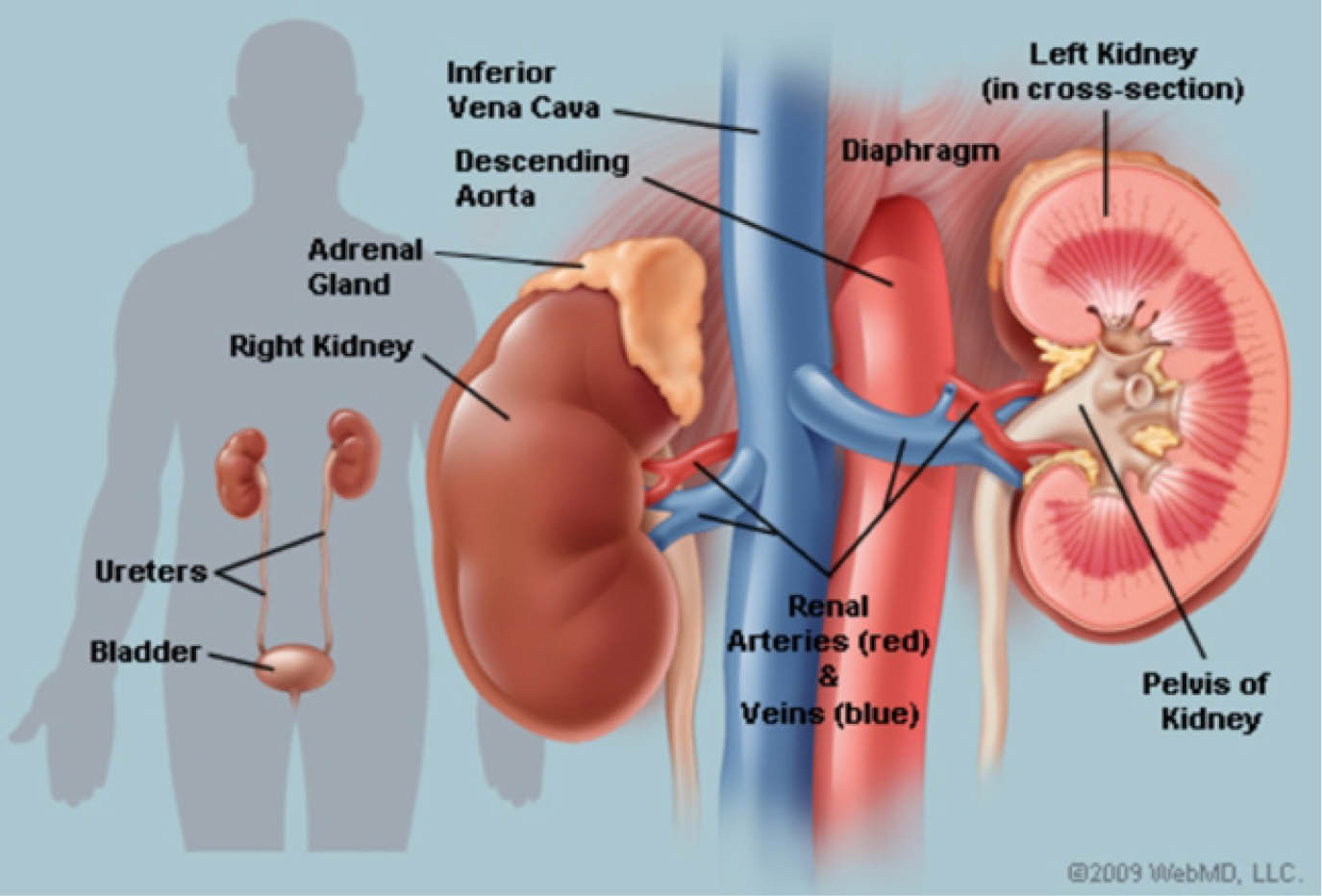In Nigeria, as in most other countries, hypertension and diabetes mellitus account for the majority of cases of chronic kidney disease. Both disorders are detected and managed by general physicians before organ damage appears. Thus, since we know the population at risk for kidney failure, focus and early intervention in patients with hypertension or diabetes will facilitate the prevention of end-stage kidney disease.
What is chronic kidney disease?
Kidney failure is classified into two categories – chronic and acute. Chronic kidney disease (CKD) is a condition in which kidney damage occurs gradually over a long period and can lead to permanent kidney failure.
When this happens, the kidneys fail to filter your blood as needed and the wastes that are normally excreted in the urine accumulate in your blood.
- What to know about back pain
- 1,110,820 Nigerians received first dose of Astrazeneca vaccine — Ehanire
Acute kidney failure, otherwise known as acute kidney injury, has an abrupt onset, typically within a few hours or days and is potentially reversible. Acute kidney injury will be discussed at a later date.
CKD is a “silent disease”, so most people with CKD are unaware that they have it. Symptoms typically occur when the kidneys are functioning at or below 10% to 15% of their full capacity. Using “estimated glomerular filtration rate” (eGFR), CKD is classified from Stage 1 to 5, with stage 1 being early, and stage 5 also known as end-stage renal disease (ESRD) being the final stage.
(Figure 1).
The stage is assigned based on the level of kidney function – irrespective of the underlying cause. Once your kidney failure progresses to stage 5 CKD (ESRD), which means you have 10-15% or less of your kidneys working, then you will need dialysis or a kidney transplant to stay alive.
Figure 1 – Stages of Chronic Kidney Disease classified by “estimated GFR”
Why do kidneys fail?
Chronic kidney disease in adults may be caused by;
- Hypertension/High BP
- Diabetes mellitus
- Chronic glomerulonephritis due to infections like malaria
- Chronic pyelonephritis
- HIV/AIDS
- Alternative medicine products
- Some herbal concoctions
- Complications of drugs such as NSAIDs (Ibuprofen, Diclofenac, etc);
Antibiotics (Gentamicin, etc)
What are the symptoms of chronic kidney disease?
Symptoms typically occur when the kidneys are functioning at or below 10% to 15% of their full capacity. Then, you may notice any of the following symptoms:
▪Fatigue/Weakness ▪Loss of appetite ▪Difficulty sleeping ▪Changes in urination ▪Muscle cramping ▪Constant itching High blood pressure ▪Shortness of breath ▪Nausea/Vomiting ▪Swelling of the body, hands or feet ▪Decreased mental sharpness
How is chronic kidney disease diagnosed?
To diagnose kidney failure, your doctor may perform one of several tests, including:
■ Blood testing: To measure creatinine and blood urea nitrogen; the eGFR is calculated using the serum creatinine level in combination with demographic factors such race, age and gender.
■ Urine testing: Checking for protein, blood cells and urine specific gravity.
■ Kidney ultrasound: Takes a “picture” to show the size, shape and internal structure of the kidneys. Can reveal blockages in urine flow, kidney stones or tumour.
■ Kidney biopsy: Using a needle inserted into the back, a small piece of kidney tissue is removed and examined under a microscope.
How is chronic kidney disease treated?
Once kidney failure is detected, INSIST that your doctor refers you to a kidney specialist who will evaluate you, and determine if there is a REVERSIBLE cause for your kidney failure. If no reversible cause is found, then the main focus will be on slowing the progression of chronic kidney disease by;
- a) Aggressive blood pressure control ― BP should be less than 130/80, or down to 120/75 if there is protein in your urine or if you have diabetes mellitus.
- b) Protecting the kidneys against further damage by avoiding certain medications and herbal concoctions, as well as adjusting the dose of some medications that you take.
- c) Controlling diabetes mellitus.
- d) Dietary adjustments.
- e) Treating anaemia.
- f) Treatment with special medications such as angiotensin-converting enzyme inhibitors or angiotensin receptor blockers.
If kidney failure progresses to stage 5, which means you have 10-15% or less of your kidneys working, medication and dietary adjustments are not enough. To stay alive, you will require one of the following treatments;
■ Hemodialysis ─ Artificial filtering of the blood by a machine to replace the work that damaged kidneys can’t do. The patient is connected to a dialysis machine, which filters your blood and returns it to the body. Usually performed for about four hours, three times a week.
■ Peritoneal dialysis ─ Through a catheter, a special fluid is placed in the abdomen, allowing the body to filter the blood using the natural membrane lining the abdomen. After several hours, the fluid with the waste is drained and discarded.
■ Kidney transplant ─ A kidney may be transplanted from a living donor, or from a recently deceased person.
All over the world, even in countries with government-sponsored health insurance, the death rate in patients with stage five CKD is unacceptably too high.
In fact, the situation is even more dire in Nigeria because the majority of individuals who develop end-stage kidney failure cannot afford the astronomical cost of hemodialysis or kidney transplantation and are typically dead within a few months.
Therefore, the focus MUST be on the Prevention of kidney failure → by any means necessary. A future article will proffer a comprehensive action plan for kidney failure prevention in Nigeria where EVERYONE OF US has a major role to play.

 Join Daily Trust WhatsApp Community For Quick Access To News and Happenings Around You.
Join Daily Trust WhatsApp Community For Quick Access To News and Happenings Around You.

